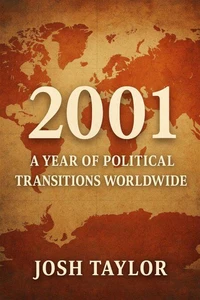This book provides an expansive exploration of the spread of U. S. culture globally in the 20th and 21st centuries, examining how American cultural, political, and technological forces have influenced and reshaped societies around the world. Starting with the aftermath of World War I, the book delves into the rise of American cultural exports-from Hollywood cinema and jazz music to the mass consumption of U.
S. products like fast food and fashion. These exports, often rooted in ideals of freedom, individualism, and consumerism, were carried to international audiences through new media technologies, multinational corporations, and diplomatic efforts, making American culture a dominant global force. The book further analyzes how American political ideals, particularly the notion of democracy and capitalism, were promoted through cultural diplomacy and economic aid, particularly during the Cold War.
The interconnectedness between American cultural influence and the country's economic and political power is explored, emphasizing the role of U. S. universities, scientific innovation, and technological advances in shaping global narratives. American sports, fashion, media, and digital platforms are discussed as key agents of cultural diffusion, with each chapter revealing how these cultural products have been embraced, resisted, or adapted across the globe.
The growth of American sports leagues, global fashion trends, and the digital revolution are shown to both shape and reflect societal shifts, from youth movements to the growing concerns about the ethics of globalization and cultural imperialism. In the final analysis, the book concludes by reflecting on the enduring legacy of American culture in the 21st century. As new challenges arise, particularly in the face of rising global powers and the increasing influence of digital media, the United States remains a key player in shaping the modern world, even as its cultural hegemony is questioned and negotiated in complex and multifaceted ways.
This book ultimately provides a critical lens through which to understand the ways in which American culture has become both a symbol of modernity and a source of tension in an interconnected world.
This book provides an expansive exploration of the spread of U. S. culture globally in the 20th and 21st centuries, examining how American cultural, political, and technological forces have influenced and reshaped societies around the world. Starting with the aftermath of World War I, the book delves into the rise of American cultural exports-from Hollywood cinema and jazz music to the mass consumption of U.
S. products like fast food and fashion. These exports, often rooted in ideals of freedom, individualism, and consumerism, were carried to international audiences through new media technologies, multinational corporations, and diplomatic efforts, making American culture a dominant global force. The book further analyzes how American political ideals, particularly the notion of democracy and capitalism, were promoted through cultural diplomacy and economic aid, particularly during the Cold War.
The interconnectedness between American cultural influence and the country's economic and political power is explored, emphasizing the role of U. S. universities, scientific innovation, and technological advances in shaping global narratives. American sports, fashion, media, and digital platforms are discussed as key agents of cultural diffusion, with each chapter revealing how these cultural products have been embraced, resisted, or adapted across the globe.
The growth of American sports leagues, global fashion trends, and the digital revolution are shown to both shape and reflect societal shifts, from youth movements to the growing concerns about the ethics of globalization and cultural imperialism. In the final analysis, the book concludes by reflecting on the enduring legacy of American culture in the 21st century. As new challenges arise, particularly in the face of rising global powers and the increasing influence of digital media, the United States remains a key player in shaping the modern world, even as its cultural hegemony is questioned and negotiated in complex and multifaceted ways.
This book ultimately provides a critical lens through which to understand the ways in which American culture has become both a symbol of modernity and a source of tension in an interconnected world.

 , qui est-ce ?
, qui est-ce ?